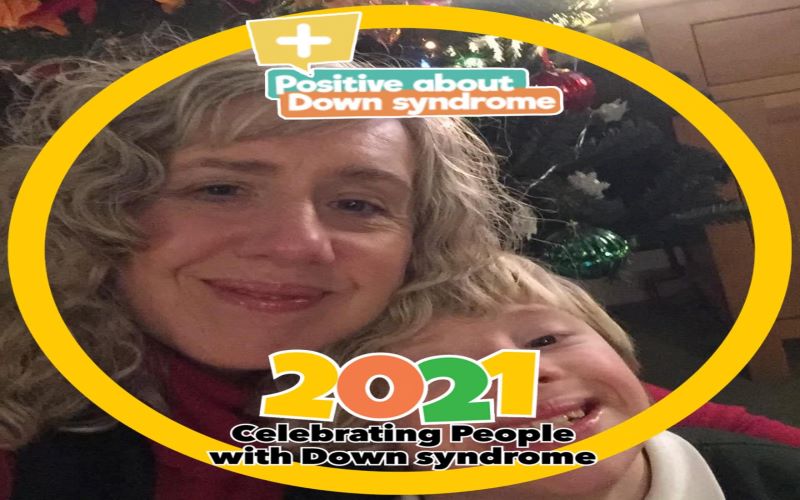WDSD 2021: The Problem with Awareness Days

Kerry Fender
Down’s Syndrome, my family and me – one mum’s account of family life with an extra chromosome.

March21st is World Down Syndrome Day.
In the US, they also have a whole month, October, dedicated to raising awareness of Down Syndrome (or Down’s Syndrome, as we call it over here).
But do we really need to ‘raise awareness’ of Down’s Syndrome?
After all, it’s hardly a rare or novel condition – it has existed as long as the human genome, and occurs all over the world, in all sections of the human population.
Surely everybody already knows about Down’s Syndrome?
Certainly, people seem easily able to recognise the outward features of Down’s Syndrome.
In public places like shops, libraries, and hotel dining rooms, strangers see them in my son and are instantly aware that he has Down’s Syndrome.
I know because they make comments like:
‘Bless! They’re always happy, aren’t they?’
‘Oh, we’ve got one of them in our street.’
Because what they see when they look at him is not a boy cropped blond hair and skinny jeans who happens to have Down’s Syndrome – they stop seeing him as an individual as soon as they clock his eyes and the outline of his neck.
Received wisdom gets in the way of true vision -- what they see is an outdated stereotype of the condition, a cardboard cut-out with a bowl haircut, ill-fitting, dowdy clothes and the vacant gaze of a person denied education, a family life and stimulating, purposeful activity.
What they see is a caricature of the institutional past.
Clearly, then, we DO need more awareness – awareness of the facts about Down’s Syndrome, and of the reality of life for people with Down’s Syndrome in the21st Century.
That is why, on March21st every year, we take the opportunity to celebrate people with Down’s Syndrome, and all the wonderful qualities they bring to the world – because that is the best way to call the world’s attention to just what people with Down’s Syndrome can achieve, and what fulfilling, well-rounded lives they can have, when given the opportunity.
Or, at least, that is what many in the ‘Down’s Syndrome community’ do.
Me? I tend to go a little quiet, hang back -- because, for all it’s positive, celebratory tone, World Down’s Syndrome Day – any Down’s Syndrome Awareness day or month, leaves me feeling a little hollow, deflated.
It doesn’t seem to matter how many facts we share, how much positive awareness of the realities of our lives we share, no matter how many parent advocates have been doing exactly this for decades before us, there is always the sense that the general public never quite embrace all of this as the truth.
It’s like they have a desperate need to cling to their old ideas.
Whatever you say, it’s like there is always a looming ‘but’ hanging in the air.
‘But’ may only have three letters but it is a very big word. It contains a whole world of, often unspoken, prejudices and fears.
‘But they’re not all like that.’
‘But I couldn’t cope.’
‘But I don’t want that kind of life.’
In other words, ‘that’s all very well for you, BUT not for me’.
And that brings us to the crux of the problem with awareness days.
There is something that we need far more than awareness, something that no amount of positive awareness seems able to bring – acceptance.
By acceptance I don’t mean simply accepting that people with Down’s Syndrome exist or accepting the fact that people with Down’s syndrome can have good quality of life or can achieve many of the things that their mainstream peers can.
I mean true acceptance.
True acceptance means accepting that people with Down’s Syndrome are your equals in human dignity and human rights.
It means accepting that people with Down’s syndrome have a RIGHT to exist and a RIGHT TO LIFE, the same automatic right to life that you and I enjoy.
It means understanding that it is unethical, morally reprehensible, and just plain WRONG for Down’s Syndrome to be targeted by (and be touted as the poster-child for) a publicly-funded healthcare initiative whose mission is to deliberately seek out Down’s Syndrome in the womb solely in order to offer parents the chance the abort the foetus.
An initiative which provides a recognised pathway of care for those who opt for termination but no equivalent care pathway for those who do not.
True acceptance means understanding that this is a fact and not a matter for debate.


